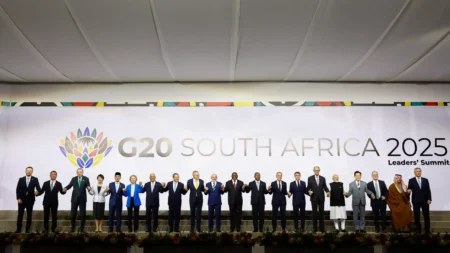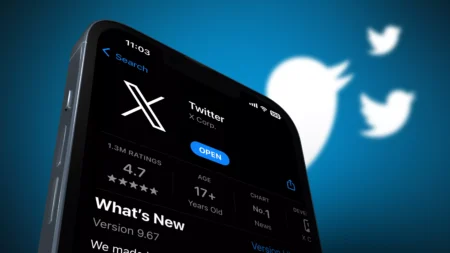TikTok has warned that it may be forced to “go dark” in the United States on Sunday unless the government intervenes to delay a looming ban.
In a statement on Friday, the platform accused the White House and the Department of Justice of failing to provide clarity or assurances to the service providers critical to its operation.
The app’s parent company, ByteDance, has until January 19 to sell its US operations to a neutral party, following a Supreme Court decision earlier on Friday that upheld a law passed in April. The law mandates the sale to address national security concerns, or TikTok will face an outright ban.
TikTok has argued that the legislation violates the free speech rights of its 170 million US users. However, the Supreme Court ruling means the app will be removed from app stores and web hosting services unless a buyer emerges soon.
While initial reports suggested the ban would primarily affect new downloads, TikTok’s statement hinted that the app might become immediately inaccessible to all users, even those who already have it installed. Without updates, the app’s functionality would degrade over time, leading to eventual obsolescence.
Many influencers and creators on TikTok have begun saying their goodbyes, with some announcing plans to move their content to other platforms, including Red Note, a Chinese video-sharing app that has yet to gain significant traction among US users.
Nicole Bloomgarden, a popular creator, described the ban as a significant financial blow, while Erika Thompson noted that the loss of educational content would be a setback for the platform’s community.
The situation has also sparked political tensions.
Outgoing President Joe Biden stated that enforcing the ban would be a responsibility for the incoming administration.
President-elect Donald Trump, set to be sworn in on Monday, has expressed mixed views, initially supporting the ban but later signaling hesitance.
Trump revealed he had discussed TikTok with Chinese President Xi Jinping and remarked that the app played a role in engaging young voters during the 2024 election.
Despite legislative and judicial pressures, ByteDance has refused to sell TikTok, indicating plans to shut down its US operations if no resolution is reached. Lawmakers from both parties have cited security concerns about the app’s ties to the Chinese government, though TikTok has consistently denied sharing user data with Beijing.
This high-stakes standoff underscores the ongoing debate about privacy, security, and digital freedom in the age of global technology platforms.
The potential ban on TikTok arises amid growing concerns in the United States over Chinese espionage activities.
Cybersecurity experts have raised alarms, suggesting that the app may collect user data extending beyond activity on TikTok itself, fueling fears about privacy and national security.
US Attorney General Merrick Garland said authoritarian regimes should not have “unfettered access” to Americans’ data and that the decision prevented China from “weaponising TikTok to undermine America’s national security.”
In 2017, China introduced a law requiring its nationals abroad to cooperate with the country’s intelligence agencies. However, Beijing has denied allegations of pressuring companies to gather information on its behalf and has criticized the potential TikTok ban.
TikTok has consistently maintained that it has never been asked to share its data with the Chinese government.
The company has argued that the ban poses a threat to free speech and would negatively impact its 7,000 US employees, as well as its users, advertisers, and content creators.
The road to TikTok’s US ban: How did we get here?
24 April 2024: President Biden signs a bipartisan bill targeting TikTok, giving its Chinese parent company, ByteDance, six months to divest its controlling stake or face a ban in the United States.
7 May 2024: TikTok files a lawsuit against the bill, calling it a significant violation of free speech rights.
2 August 2024: The US government sues TikTok, accusing the platform of unlawfully collecting data from children and not complying with parents’ requests to delete accounts.
6 December 2024: A federal appeals court rejects TikTok’s attempt to overturn the law requiring the company to either sell its US operations or face a ban in 2025.
27 December 2024: President-elect Donald Trump asks the US Supreme Court to delay the TikTok ban as he works toward a “political resolution.”
10 January 2025: The US Supreme Court hears arguments from TikTok and content creators, who claim the ban would infringe upon free speech rights for over 170 million US users.
17 January 2025: The US Supreme Court upholds the law, which could lead to TikTok’s ban in the US within days due to national security concerns.
19 January 2025: The deadline arrives for ByteDance to sell its US stake or face a ban. TikTok has warned it may “go dark” on this day.







